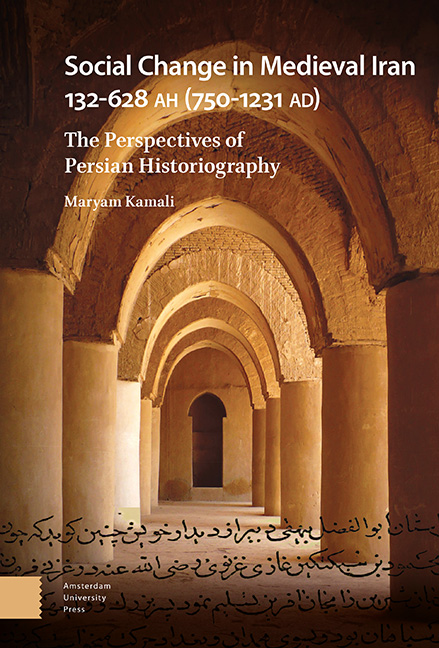Book contents
Part I - The Formation of Iranian Authority under the ʿAbbāsid Caliphate
Published online by Cambridge University Press: 28 December 2023
Summary
The Iranian role in the transition from the Umayyads (41–132 AH/661–749 AD) to the ʿAbbāsid Caliphate (132–656 AH/750–1258 AD) shaped a circle of social change in the medieval history of Iran. Medieval Iran had become a part of the Islamic territories yet had intense memories of its position as a great empire in pre-Islamic times. It went through a period of silence and self-examination during the Umayyad Caliphate.
The Umayyad Caliphate barred various Muslim sects of differing worldviews and did not hesitate to commit all kinds of violence and repression. The massacre of Shiʿites during various movements (from Āshurā–Moharram 10, 61 AH/10 October 680 AD) to the uprising of Zeyd ibn ʿAli (Safar 122 AH/ January 740 AD) and Yahyā ibn Zeyd (Shaʿbān 125 AH/June 743 AD), and the humiliation of the mavāli (non-Arab Muslims) are just a few examples of the repressive and monopolist actions of the Umayyad Caliphate.
Despite the Umayyads’ oppressive policies, the Iranians continued to search for an opportunity to regain their lost authority by re-establishing the previous power structure. The establishment of the ʿAbbāsid Caliphate was pivotal for Iranians in their move toward independence. The historical experience of ancient Iran and the period of Islamic rule until the end of the Umayyad Caliphate had shown the Iranians that they had to equip themselves with the correct religious beliefs and substantial military resources in order to participate in the power structure. These two structural resources enabled them to legitimize their power. It helped them to arrive at a political structure as religious and military agents and achieve the highest ranks of power as a result.
The first chapter examines the processes the ʿAbbāsids went through first to achieve power. Abu Moslem Khorāsāni, the great dāʿie of the ʿAbbāsids, was the first Iranian military man to initiate any movement against the Umayyads in Khorāsān where the last Sāssānid king, Yazdgird III (r. 11–30 AH/632–651 AD), had been killed by an unknown person. Abu Moslem established his way toward reaching social change and managed to reinvent himself not as the initiator of a single rebellion but as an influential agent in the circle of social change.
- Type
- Chapter
- Information
- Social Change in Medieval Iran 132-628 AH (750-1231 AD)The Perspectives of Persian Historiography, pp. 41 - 44Publisher: Amsterdam University PressPrint publication year: 2023



